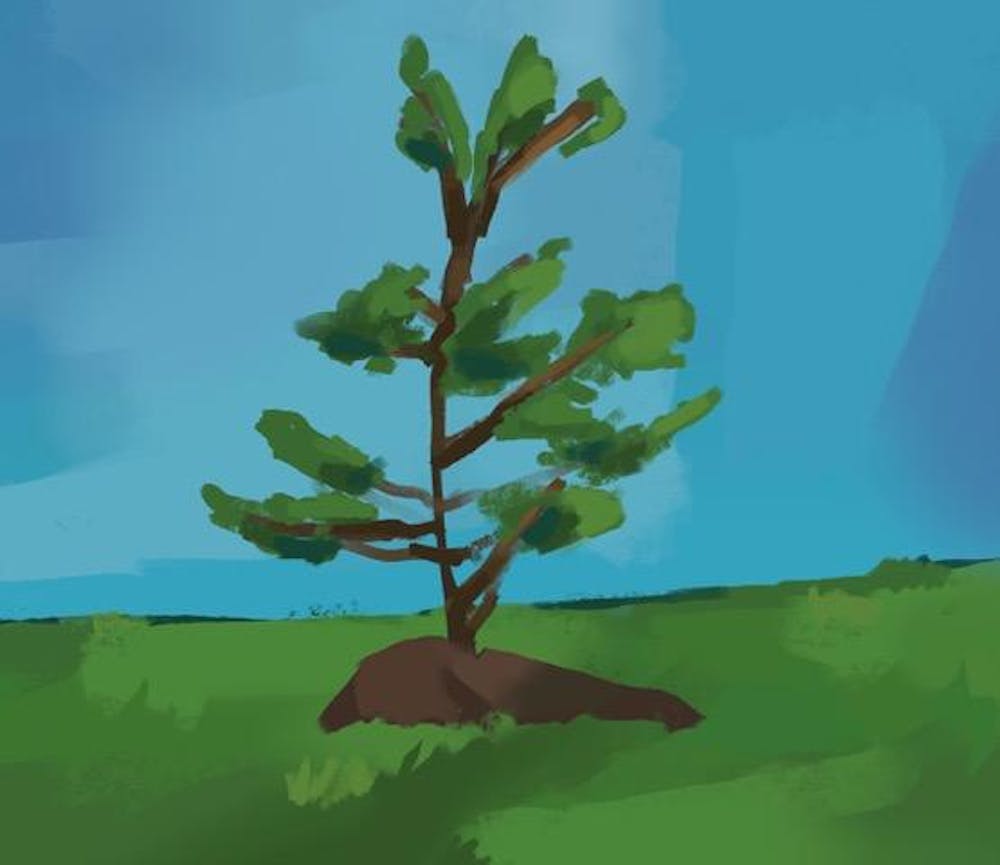This article is part of an Earth Month series exploring environmental issues, climate initiatives and community stakeholders throughout Providence and Rhode Island.
Last week, the Rhode Island Department of Environmental Management donated over 2000 trees through the Energy-Saving Trees program. This year marks the eighth year of the collaboration between RIDEM, Rhode Island Tree Council, Rhode Island Nursery and Landscape Association and Arbor Day Foundation.
Interested participants could reserve one of 1000 available trees for in-person pickup. Alternatively, participants could request one of 1200 trees available for home delivery.
The program’s mission is to help Rhode Islanders save energy and lower their utility bills by planting trees in strategic locations on their property, according to a RIDEM press release.
Arbor Day provides interactive mapping technology to help residents identify “ideal planting locations, which then results in more energy savings from the shade and the windbreak that those trees can provide,” said Kristen Bousquet, a corporate partnerships manager for Arbor Day.
The organization, founded in 1972, is one of the world’s largest organizations dedicated to planting trees, according to their website. The organization plants and distributes more than 10 million trees each year. “The easiest and most efficient place to begin to course-correct (climate change) is with trees,” the website continues. “Lots and lots of trees.”
“You’ve got to recognize the importance of trees and not just for aesthetic value,” said Robert Allard, urban and community forestry program coordinator for RIDEM. He cited carbon sequestration, flood mitigation and mental health as “just some of the many benefits” of more trees.
As part of their partnership with RIDEM, Arbor Day secures trees that are suitable for Rhode Island’s climate from local nurseries. This year, species for in-person pickup included paw paw, tree lilac, Kousa dogwood, Princeton elm, bald cypress and tulip trees. Tree species available for direct mailing included white flowering dogwood, eastern redbud, river birch, pin oak, sycamore, sugar maple and black cherry.
The trees come from the Rhode Island Nursery and Landscape Association. Its members provide trees to the program at a discounted price, according to RINLA Executive Director W. Michael Sullivan.
The Regional Greenhouse Gas Initiative provided funding for the program. According to Sullivan, a large portion of this money goes to RINLA because they are “the source of the good trees.”
Planting trees “can save lives and cities,” Bousquet said. Plus, they give residents an “all-encompassing view of what this tree can do not only for them individually, but also for their entire community,” she added. “There’s a greater sense of community in a neighborhood with trees,” Sullivan said.
Registration for the program opened April 12 and every tree was reserved within two days. “The excitement for trees is there,” Allard said. “It used to be surprising that they were claimed within a week. Now, by day two, they’re gone.”
“It's so fun to see all of the participants and the excitement that they have around trees,” Bousquet said, especially “as more and more communities are focused on their climate action plans for the future.”

Maya Kelly is a metro editor from Providence who covers community, crime and activism as well as business and development. A concentrator in urban studies and data fluency, she is passionate about intersecting storytelling with data analysis. When Maya's not at The Herald, you can find her hanging from an aerial silk, bullet journaling or in the middle of a forest.





